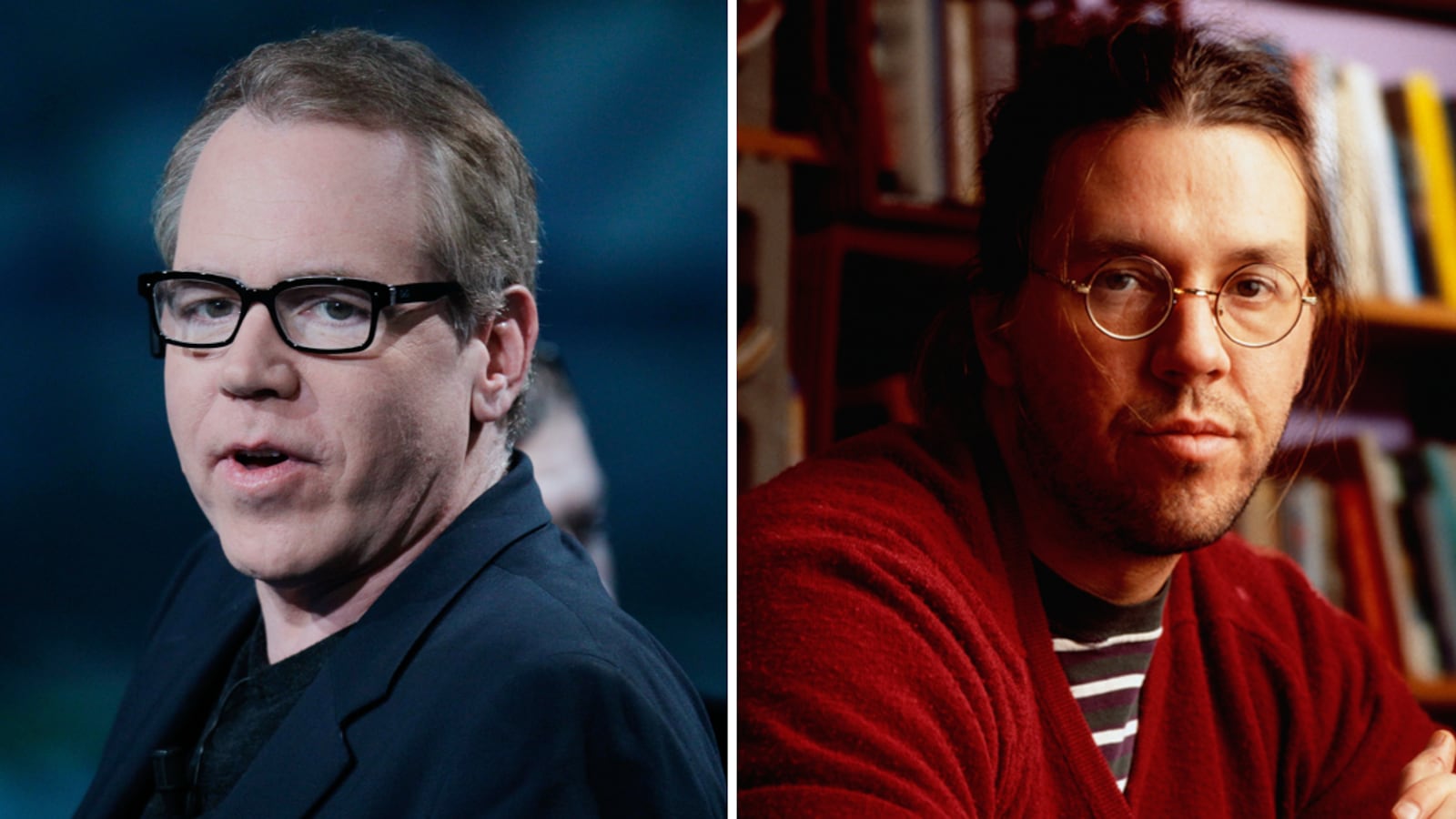
May 21, 2010 4:01 PM EDT
While some people spent this week debating environmental catastrophes, coalition governments, and the economic crisis, two members of the media had other things on their minds. Michael Wolff, Vanity Fair columnist and founder of Newser, and Jonathan Alter, senior editor of Newsweek, were bickering. It started last Friday when Wolff described Alter in his online Newser column as “the most pompous man in American journalism.” Then, on Monday, he panned Alter’s recent book The Promise: President Obama, Year One as a “snoozer.” Readers had only to click on a few links to witness Alter’s pulse racing; unable to resist the bait, he responded to Wolff, cc-ing Gawker. Had his critic, he asked, actually read the book? Well, no, Wolff replied; he had only “skimmed it.” But that was, apparently, beside the point—which he got to on Thursday in a column entitled “ Who Killed Journalism? Jonathan Alter?” If you were wondering, the answer to this question was in the affirmative.
It had all the right ingredients for a discomfiting entertainment: the human necessity to provoke, to answer back, to raise the stakes dangerously high. But we at The Daily Beast could not help but feel that—as entertaining as it might have been—the Alter-Wolff altercation was no match for the greatest literary feuds of the past. So, in the spirit of aggravation, The Daily Beast would like to present its nominations for the top 11 great literary feuds of all time. And, if you were wondering what makes for a great feud, we have let you in on the judges’ five simple—if deeply contentious—guidelines:
- The greatest literary feuds begin as a response to words, preferably written ones. Take as an example old friends Vladimir Nabokov and Edmund Wilson, who parted ways over Nabokov’s translation of Aleksandr Pushkin’s Eugene Onegin. Wilson, reviewing the book, claimed that Nabokov’s translation was impenetrable—to which Nabokov replied that Wilson was a “commonsensical, artless, average reader with a natural vocabulary of, say six hundred basic words.” The pair didn’t speak for years. Note: By this principle, the 30-year silence between the two giants of Latin American literature, Gabriel Garcia Marquez and Mario Vargas Llosa, does not constitute a feud because their scuffle was over a woman.
- The greatest literary feuds are more than PR stunts. In our books, columnists—like Michael Wolff and Jonathan Alter—don’t qualify as great feuders because, we figure, they are actually looking for a fight, like professional boxers. We prefer the image of the bespectacled author swinging a more surprising, amateur punch—as when Wallace Stevens warmed up to fisticuffs with his rival with the provocative question, “So you think you’re Ernest Hemingway?”
- Great literary feuds are not the same as vigorous intellectual debates. When James Wood coined the phrase “hysterical realism” in order to pinpoint what he felt were Zadie Smith’s shortcomings as a young novelist, and when Zadie Smith suggested that only someone with the most conservative tastes would have unequivocal praise of Joseph O’Neill’s Netherland, readers probably learned too much about theories of contemporary fiction for the exchange to be considered a really satisfying (which is to say, a really futile) feud.
- Bullying doesn’t count. For a feud to entertain, both parties have to give as good as they get. When in 1989 Norman Mailer remarked that, "[i]n my mind, there is something silly about a man who wears a white suit all the time, especially in New York,” Tom Wolfe brushed off the sartorial attack with the witty epigram, "the lead dog is the one they always try to bite in the ass" (to which Mailer responded "It doesn't mean you're the top dog just because your ass is bleeding"—and so on). The conflict between Hemingway and F. Scott Fitzgerald, on the other hand, was less satisfying: Hemingway called Fitzgerald a sissy, a moaner, and a drunk and portrayed him as such in his fiction and memoirs; Fitzgerald got really upset.
- In real feuds, both parties have something at stake. Tolstoy, Dostoevsky and Turgenev, for instance, were all fighting, ultimately, for greatness (or was it for money?). Writers, it should be noted, almost always have more at stake than critics. When Alain de Botton responded to one critic’s bad review by posting a response on the critic’s website in the middle of the night (“I will hate you till the day I die and wish you nothing but ill will in every career move you make”), he could not instigate the feud he craved because he had lost a great deal more than the critic ever could. In fact, it almost feels mean to bring it up again.






